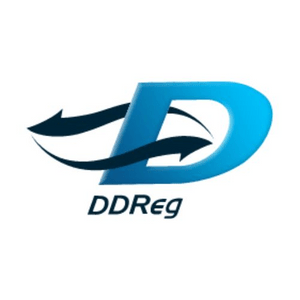The Crucial Role of Regulatory Affairs
The Crucial Role of Regulatory Affairs
in Ensuring Compliance and Safety in the PharmaceuticalIndustry

The pharmaceutical industry is renowned for its strict regulations, and for good reason. The products developed andmanufactured by pharmaceutical companies directly impact human health andsafety. Regulatory Affairs Consulting Services (RA) is an indispensable function within this
industry, responsible for ensuring compliance with laws and regulations to guarantee the safety and effectiveness of pharmaceutical products. RA professionals play a pivotal role in safeguarding public health by upholding the highest standards of quality and safety.
Key Responsibilities of RegulatoryAffairs Professionals
1. Understanding and Interpreting Regulatory Requirements: RA professionals stay abreast of ever-evolving Global Regulatory Consulting requirements across countries, covering drug development, manufacturing, clinical trials, marketing, and post-marketing surveillance.
2. Ensuring Compliance: Developing and implementing systems and procedures to ensure company-wide compliance with regulatory service requirements, including the maintenance of quality systems, conducting audits, and resolving compliance issues.
3. Preparing and Submitting Regulatory Applications: RA professionals are responsible for preparing and submitting regulatory applications to global regulatory service in USA for clinical trial approval, marketing authorization, and post-marketing surveillance.
4. Interacting with Regulatory Agencies: Regular interactions with regulatory agencies involve answering inquiries, providing additional information, and addressing concerns, ensuring a collaborative relationship.
5. Managing Post-Marketing Surveillance: RA professionals oversee post-marketing surveillance activities, collecting and analyzing data on adverse events and taking appropriate corrective actions.
Examples of RA's Contribution to Public Health
1. Safe and Ethical Clinical Trials: RA professionals ensure that clinical trials are conducted safely and ethically, and that the generated data is accurate and reliable.
2. Quality Manufacturing: They oversee adherence to Good Manufacturing Practices (GMP) to ensure Pharmacovigilance Services in USA are of high quality and safety.
3. Truthful Marketing: RA professionals ensure that are marketed truthfully and without misleading information.
4. Safety Monitoring: Monitoring the safety of pharmaceutical products after they reach the market allows RA professionals to collaborate with regulatory agencies to issue recalls or warnings if safety concerns arise.
Regulatory Affairs and Pharmacovigilance: An Interrelated Partnership
Pharmacovigilance (PV) is another essential field within the pharmaceutical industry, focused on collecting, analyzing, and evaluating drug safety data to prevent adverse reactions. PV and RA collaborate closely:
Pharmacovigilance: Safeguarding Drug Safety
1. Data Collection: PV professionals gather safety data from various sources, including clinical trials and spontaneous reports.
2. Signal Detection: They identify potential safety signals through data analysis and provide signal management advise.
3. Risk Assessment: PV experts assess the risk and benefit of drugs, informing decisions about their use offering best risk management solutions.
4. Communication: Safety information is effectively communicated to healthcare professionals, regulatory service in China , and the public.
Regulatory Affairs: Ensuring Compliance and Quality
1. Pre-Market Approval: RA teams prepare and submit drug approval applications, evaluating safety, efficacy, and quality data.
2. Post-Marketing Surveillance: RA professionals monitor drug safety and quality post-approval, including inspections, audits, and GMP adherence.
3. Labeling and Packaging: Ensuring compliance with regulatory requirements in drug labeling and packaging.
4. Advertising Compliance: Adherence to regulatory requirements in drug advertising.
Challenges Faced
Despite their critical roles, both PV and RA encounter challenges:
1. Rapid Drug Development: Evolving regulatory requirements due to fast-paced drug development.
2. Standardization: Inconsistent practices across regions complicate compliance.
3. Resource Limitations: Limited resources can hinder effective monitoring of drug safety.
DDReg, a regulatory consulting company, can provide services to pharmaceutical companies by assisting with regulatory compliance assessment, strategy development, submissions support, quality system implementation, audits, training, pharmacovigilance support, global regulatory intelligence, and integration of regulatory affairs and pharmacovigilance teams.
DDReg provides regulatory strategies to help pharmaceutical companies navigate regulatory challenges and prioritize patient safety, ensuring compliance with evolving RIMS Software and maintaining the highest standards of quality and safety in the pharmaceutical industry.
Conclusion
The pharmaceutical industry relies on the collaborative efforts of Regulatory Affairs and Pharmacovigilance Services in UK to ensure drug safety and compliance. Their partnership spans every phase of drug development and post-marketing surveillance, ultimately benefiting patients by providing safe and effective medicines. Despite challenges, the dedication and expertise of professionals in these fields are indispensable for the pharmaceutical industry's success and the well-being of patients worldwide.

